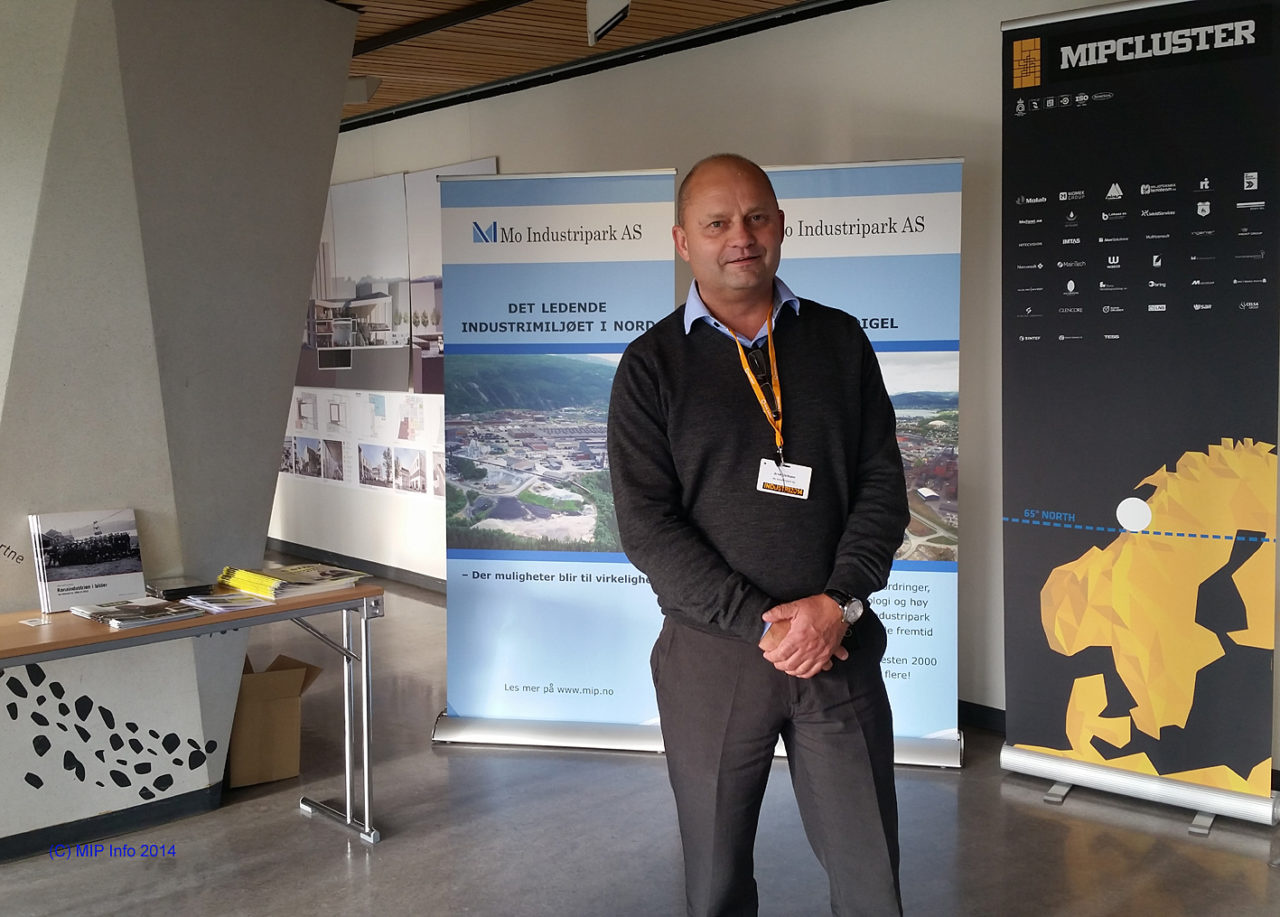
Industri2014 is over. Now what?
18 oktober, 2014 13:37 Del Del“Industri2014 was an important venue for us. We have held a number of meetings at a top political level in Norway, with cabinet minister Vidar Helgesen, trade union leader Gerd Kristiansen, representatives of Enova and the Federation of Norwegian Industries, as well as a number of other politicians from Parliament and the county of Nordland,” says CEO Arve Ulriksen of Mo Industripark AS.
This conference was an excellent profile of a national industrial conference involving Ranaindustrien and Mo Industripark AS.
“Being able to promote our issues in such arenas, at both the conference and informal meetings, has been extremely valuable,” says Ulriksen.
He is very pleased that Mo Industripark AS and Ranaindustrien were able to help compile the agenda and influence the themes up for discussion at the conference because Arve Ulriksen was a member of the programme committee.
Focus on the environment
“One important theme at Industri2014 was the environment. Following this up further in future will be a high priority measure,” explains Ulriksen, referring to the “Vision 2050” report. This is a best-case scenario for a sustainable environment and a strategy for achieving this, prepared by the World Business Council for
Sustainable Development (WBCSD). This report is one of a number of documents that will be crucial to the course of environmental work going forward, in which the role of industry is also described.
“Industrial companies will set the course and are able to present the good examples.
One example is Elkem Salten AS, which has implemented a major project which reduces NOx emissions from operations; and has also had a number of other positive environmental effects. Carbon capture at Norcem AS is another example.
It is entirely possible to combine cleaner industry with commercial profit and development,” says CEO Arve Ulriksen.
He also wants to see greater emphasis on a holistic approach whereby companies implementing effective environmental measures are also rewarded in relation to the market.
“By way of example I would like to call attention to Celsa Armeringsstål AS, which is the cleanest reinforcement steel plant in Europe and removes both mercury and dioxins. The authorities issued stringent demands for the company, and they were able to meet these extremely well. At the same time, none of the company’s competitors had to meet such strict requirements.
Celsa and other companies with effective environmental measures are meeting competitors in the same marketplace, where no demands are made in terms of CO2 levels or mercury emissions in production, for example, in relation to specifications for tenders and suchlike,” says Ulriksen.
He is of the opinion that this is an important field in which politics and industry can meet – if there is the political will to do so – in order to develop regulations in which companies manufacturing products on the basis of eco-friendly measures are rewarded for their efforts.
“Industry will then be able to carry on developing effective processes while also avoiding discrimination against such companies in the market.
This could result in a win-win situation which will benefit both companies and the environment, as well as political processes in Norway. In turn, this could reinforce the political processes in order to improve measures within companies and make the production process more eco-friendly,” says Arve Ulriksen.
Categorised in: Industripark News, On the front page
Del Del